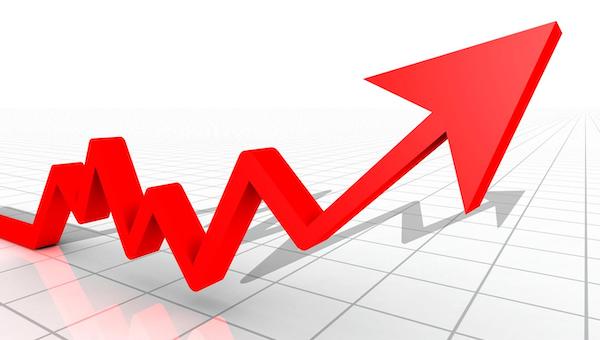Business
Naira scarcity pushes Nigeria’s inflation rate to 22.04%

For the third consecutive month in 2023, the consumer price index (CPI), which measures the rate of change in prices of goods and services has increased.
The National Bureau of Statistics’ latest CPI report released on Saturday showed that inflation rose to 22.04 per cent in March 2023, up from 21.91 percent in the previous month.
Looking at the trend, the March 2023 inflation rate showed an increase of 0.13% points when compared to February 2023 headline inflation rate.
On a year-on-year basis, the headline inflation rate was 6.13% points higher compared to the rate recorded in March 2022 which was 15.92%.
This shows that the headline inflation rate (year-on-year basis) increased in March 2023 when compared to the same month in the preceding year (i.e., March 2022).
NBS disclosed that the contributions of items on the divisional level to the increase in the headline index are food & non-alcoholic beverages (11.42%); housing, water, electricity, gas & other fuel (3.69%); clothing & footwear (1.69%); transport (1.43%); furnishings, household equipment & maintenance (1.11%); education (0.87%).
Read also:Inflation eats up 41% of average worker’s salary
Others are health (0.66%); miscellaneous goods & services (0.37%); restaurant & hotels (0.27%); alcoholic beverage, tobacco & kola (0.24%); recreation & culture (0.15%) and communication (0.15%).
However, on a month-on-month basis, the All-Items Index in March 2023 was 1.86%, which was 0.15% points higher than the rate recorded in February 2023 (1.71%). This means that in
March 2023, on average, the general price level was 0.15% higher relative to February 2023.
The percentage change in the average CPI for the twelve months period ending March 2023 over the average of the CPI for the previous twelve months period was 20.37%, showing a 3.83% increase compared to 16.54% recorded in March 2022.
Also NBS reveals that food inflation rate in March 2023 was 24.45% on a year-on-year basis; which was 7.25% points higher compared to the rate recorded in March 2022 (17.20%).
The rise in food inflation on- year on year basis was caused by increases in prices of Oil and fat, Bread and cereals, Potatoes, Yam and other tubers, Fish, Fruits, Meat, Vegetables, and Spirits.
States profile
For all items inflation rate, NBS said on a year-on-year basis was highest in Ondo (25.38%), Bayelsa (24.80%), Lagos (24.66%), while Borno (19.18%), Cross River/Sokoto (19.24%) and Benue (20.01%) recorded the slowest rise in headline inflation on a year-onyear basis.
On a month-on-month basis, March 2023 recorded the highest increases in Bayelsa (2.58%), Nasarawa (2.54%), Lagos (2.41%), while Anambra (1.03%), Ebonyi (1.14%) and Zamfara (1.27%) recorded the slowest rise on month-on-month inflation.
For food inflation, In March 2023, Food inflation on a year-on-year basis was highest in Kwara (28.84%), Ondo (28.22%), and Lagos (27.92%), while Sokoto (18.99%), Zamfara (20.57%) and Plateau (21.38%) recorded the slowest rise in food inflation on a year-on-year basis.
On a month on-month basis, March 2023 food inflation was highest in Bayelsa (3.11%), Rivers (3.00%), and Ondo (2.98%), while Bauchi (1.03%), Zamfara (1.08%) and Ogun (1.13%) recorded the slowest rise in food inflation on a month-on-month basis.
Join the conversation
Support Ripples Nigeria, hold up solutions journalism
Balanced, fearless journalism driven by data comes at huge financial costs.
As a media platform, we hold leadership accountable and will not trade the right to press freedom and free speech for a piece of cake.
If you like what we do, and are ready to uphold solutions journalism, kindly donate to the Ripples Nigeria cause.
Your support would help to ensure that citizens and institutions continue to have free access to credible and reliable information for societal development.
























